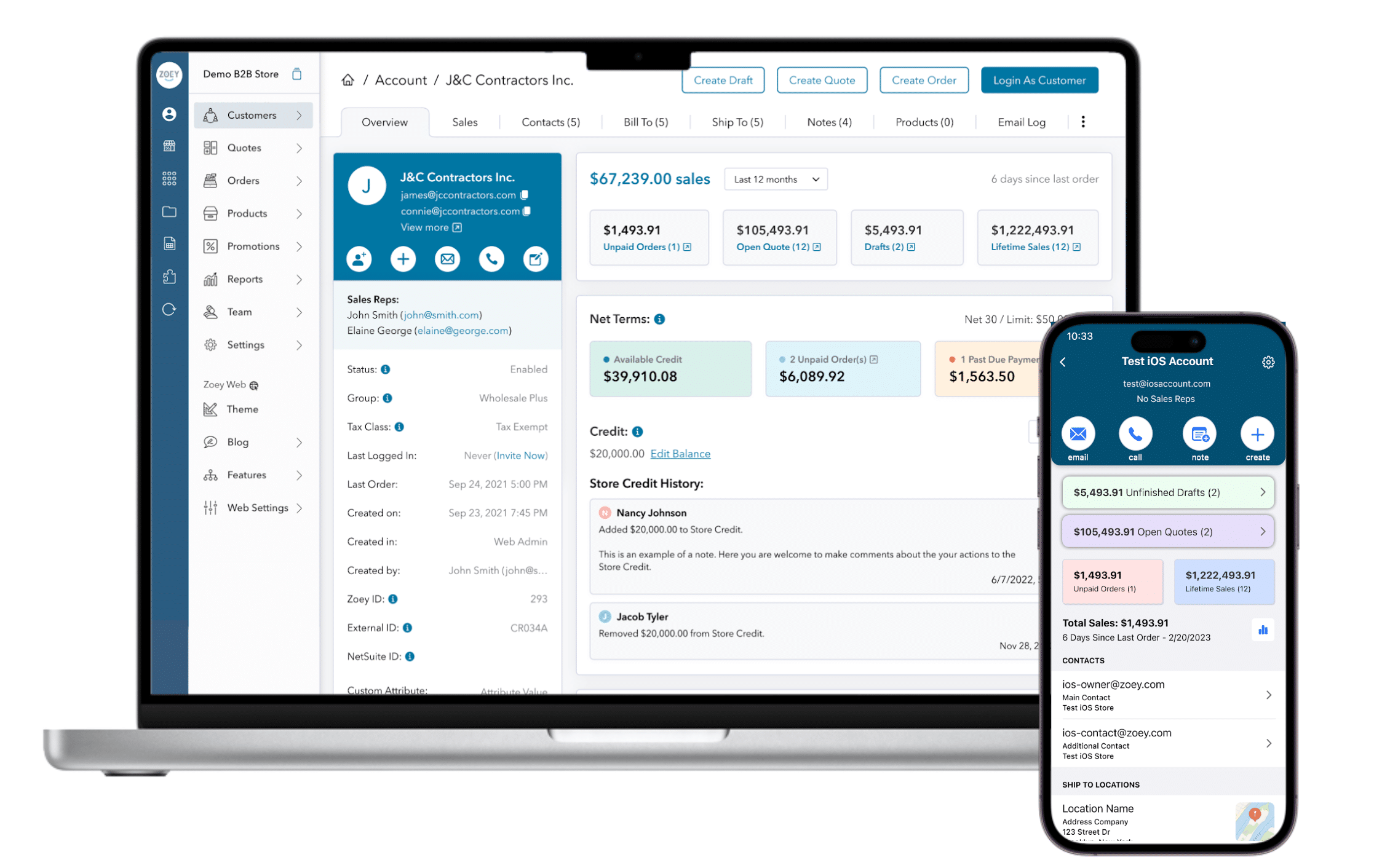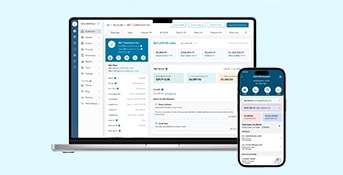
Developing a pipeline and converting customers can be a critical part of the sales process. Customer Relationship Management (CRM) software can help facilitate that, capturing lead and opportunity information and being able to develop them into actual sales.
Data shows that CRM software can help boost sales by 29%, productivity by 34% and forecast accuracy by 42%. Having CRM software that’s integrated with your Ecommerce solution can take things a step further by making it easy to move from potential buyers and sales to actual ones
Let’s take a look at 5 ways CRM solutions can help Ecommerce businesses.
1. Track All Sales Opportunities
An Ecommerce solution on its own can help make apparent potential sales opportunities, based on which customers are part of a salesperson’s book of business, how often they order, and how long it’s been since their last order.
CRM tools can add in the ability to track new leads and opportunities that have yet to convert, adding the ability to not just see what existing customer sales there are, but also potential new leads.
A full look at sales opportunities can help a salesperson know where to focus their time and energy to ensure they hit their quotas and ensure continued success of the business.
2. Reduce Level of Effort to Onboard Customers
Having a CRM built into an Ecommerce platform means information can be captured during the pre-sales process, simplifying the ability to create an Account for sales when a customer is ready to make their first purchase.
For your team, it will facilitate the process of bringing in new business, and make it easier to track a full arc of a client lifecycle, from introduction to first order to reordering.
3. Better Customer Experience
The flip side is that this process can equally facilitate a better customer experience, always helpful when setting the tone for new business opportunities and how they experience you as a potential product source.
Reducing friction on the first sale can put a helpful foot forward in building a relationship with a new customer, ensuring their initial experiences with your business and placing an order are a positive one.
4. Save Time
Having everything live in one system doesn’t just make it easier to find information, it ensures your sales team spends less time looking for opportunities and more time pursuing them.
Jumping around between systems is a form of task switching that would slow down anybody, but combined with incomplete information living in multiple systems, it simply makes someone spend more time connecting dots and less time pursuing action on those insights.
By comparison, having CRM live directly in Ecommerce ensures everything lives in a unified interface, easy to navigate and research. With insights in hand, your sales team can get to work more quickly, generating more business in the process.
5. Better Data Analysis
As we noted in the last section, data living in one place ensures data can be reviewed in total. And better data analysis will lead to more informed decision making.
This can be anything from which are the best customers to pursue, to segmenting customers so you can adjust the message based on the segment.
A CRM system brings more information to the forefront on who you’re talking to not just as existing customers, but potential ones, offering a broader look at who your audience is, and making it easier to identify how to attract and retain them.
Zoey Offers CRM and Ecommerce in One Place
Zoey’s Ecommerce-centric CRM tools make it easier to track potential customers in the same place you work with existing ones. When a new customer is ready to make a purchase, you can convert a lead or opportunity into an Account right away, making that first transaction simpler to process. Talk to us to learn how our tools can drive efficiencies in your business:





